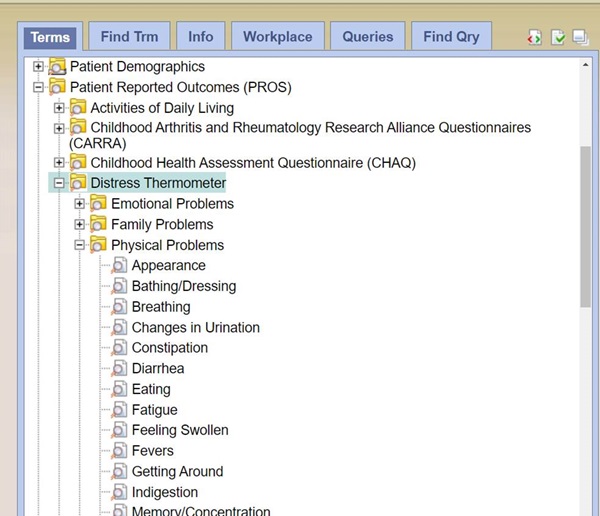Distress Thermometer scores are now available for researchers to query. “Distress is experienced by many cancer patients, adversely affecting quality of life and cancer care. Although it is often manageable, it remains woefully underidentified and underreported. Distress can occur anytime during the cancer experience and is associated with depression, anxiety, missed appointments, and adverse outcomes. In 1999, the National Comprehensive Cancer Network (NCCN), recommended routine screening for distress in all cancer patients. The Distress Thermometer (DT) was developed as a simple tool to effectively screen for symptoms of distress. The instrument is a self-reported tool using a 0-to-10 rating scale. Additionally, the patient is prompted to identify sources of distress using a Problem List. The DT has demonstrated adequate reliability and has been translated into numerous languages. The NCCN DT is a single-item tool using a 0 (no distress) to 10 (extreme distress)–point Likert scale resembling a thermometer. The patient rates his/her level of distress over the past week. The established cutoff score for further screening is a 4.”1 Distress Thermometer scores for roughly ~77k patients have been added to the TDW and can be used to build queries in i2b2.

Access this new data element in the self-service platform i2b2 by clicking on “Patient Reported Outcomes (PROS)” in the ‘Terms’ box. To pull specific data from Distress Thermometers submit a service request here (select "Data Extraction").

References:
- Ownby KK. Use of the Distress Thermometer in Clinical Practice. J Adv Pract Oncol. 2019;10(2):175-179.
